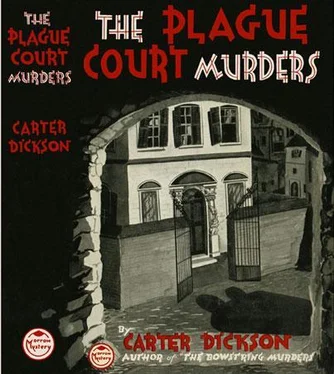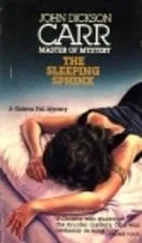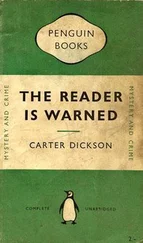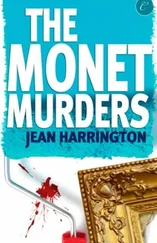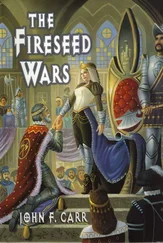"And, of course, if anybody saw what was on that paper-"
The silence held for so long a time that it appeared I had drawn a blank. Lady Benning was disinterested, but she had a contemptuous eye on Ted, who was blankly muttering something to himself.
"A pack of foolery, of course," the major announced. He cleared his throat several times. "But-aaah-for what it's worth, I think I can tell you the first line. Don't look at me like that, Anne! Confound it, I never did approve of your nonsense, and I'll tell you this besides ... those pictures I was dragooned into buying ... H'm, yes. Now that I think of it. They go into the fire tomorrow.... What was I saying? Ah!' The first line. Remember it distinctly. It said, ` I know where Elsie Fenwick is buried. "'
There was another silence, while the major stood back, wheezing and stroking at his mustache in a sort of swaggering defiance. You could hear no sound but his asthmatic breathing. Repeating the words aloud, I looked round the group. Either one person in that group of five was a magnificent actor, or else the words meant absolutely nothing to anybody. Only two remarks were made in the space of possibly three minutes: which can seem a very long time. Ted Latimer said, "Who's Elsie Fenwick?" in a querulous tone, as though irrelevant matters were being dragged in; and later Halliday observed thoughtfully: "Never heard of her." Then they all stood and looked at the major, whose port-wine cheeks were growing more mottled, and his puffings louder, as at some slur on his veracity.
And I was becoming morally certain that one of the five people before me was the murderer of Roger Darworth.
"Well?" Featherton demanded explosively. "Say something, one of you!"
"You didn't tell us of this before, William," said Lady Benning.
Featherton made a vague and irritated gesture. "But it was a woman's name, confound it," he protested, as though he were not certain of the issues himself. "Don't you see? It was a woman's name."
Ted looked round in a sort of wild amusement, as though he had seen a caricature he could not believe. Halliday muttered something about the Medes and the Persians; Marion's face wore a bright and interested expression, and she said, "Oh!" Only Lady Benning studied him grimly, catching her cloak about her neck....
Heavy footfalls clumped along the hall outside, and we all turned. The tension went back to chill hostility as Masters strode into the room.
Masters returned the hostility. I have never seen him look more disheveled, more worried, or more sinister. His coat was muddy, like the bowler jammed on the back of his head. He stood in the doorway, surveying the group slowly.
"Well?" asked Ted Latimer. The way he pitched his voice, in those circumstances, was less like defiance than childish impertinence. "Are we free to go home? How long do you intend keeping us here?"
Masters kept looking round. As though on an impulse, he let himself smile. He said, nodding:
"Why, I'll tell you, ladies and gentlemen." Carefully drawing off his muddy gloves, he reached inside his overcoat and drew out a watch. "It's now just twenty-five minutes past three. To be frank, we may be here until daylight. You may go as soon as I have had a statement from each of you - needn't be on oath, of course, but I should suggest frankness....
"We shall want these statements separately. My men are making one of the rooms as comfortable as possible, and we shall want you in one at a time. Meantime, I'll send a constable in here to keep you company, and see that no harm comes to anybody. We regard you all as valuable witnesses, ladies and gentlemen."
The smile grew tighter. "And now, um, excuse me. Mr. Blake! Will you step out here a moment, please? I should like a word in private."
IX
"LOCKED IN A STONE BOX"
MASTERS took me down to the kitchen before he spoke. Joseph was not there now. The work-bench had been slewed round so that it faced the door; with the candles burning in a line across it, and a chair drawn up a few feet out for witnesses, the background made it resemble pictures of the Inquisition's tribunal-room.
The yard behind was noisy and full of darting lights. Somebody was climbing up on the roof of the little stone house; the puff of a flashlight-powder glared out momentarily, so that the house, the wall, the crooked tree, looked as wild as a scene from Dore. Close at hand, a muffled voice said in an awed tone, "Lummy, but 'e got it, didn't 'e?" Another voice muttered, "Uh!" and somebody scratched a match.
Masters jabbed his finger out towards the scene of activity.
"I'm beaten, sir," he said. "Right now, at least, I'm beaten, and I don't mind admitting it. This thing can't have happened, but it did. We've got the evidence - clear evidence, plain evidence - that nobody in God's world could have got into that house or out of it. But Darworth's dead. Let me tell you how bad it is.... Wait! Have you learned anything?"
I started to sketch out what I had learned, and he stopped me when I was telling' about Joseph.
"Ah! Ah, yes. I'm glad you saw him; so did I" He was still smiling grimly. "I sent the boy home in a cab, under guard of a constable. He may not be in any danger, but on the other hand…."
"Danger?"
"Yes. Oh, the first part of it hangs together, sir. Neat; very neat. Darworth didn't fear this house because of its ghosts. He was very, very easy about the ghosts. What he did fear was physical harm from somebody-eh? Why else, d'ye think, did he bolt and bar his door out there? He wasn't trying to keep out a ghost with an iron bolt. But he thought somebody in his little spiritualist circle had designs on him, and didn't know which one. That was why he wanted to keep Joseph away from them tonight: to watch, and to find out. He knew it was one of this group, from the bogus message that'd been stuck among his automatic-writing drivel when only one of them could've done it. D'ye see, sir? There was something, or somebody, he was deadly afraid of; and this was a good time to get a line on who it might have been. He thought he was safe out there.... Then I told Masters about Major Featherton's evidence.
" ` I know where Elsie Fenwick is buried -' " he repeated. His big shoulders grew rigid, and his eyes narrowed. "That name's familiar. By George, that name's familiar! And it's associated with Darworth. I could swear to it. But it's been a long time since I've seen the man's dossier, so I'm not sure.' Bert will know. Elsie Fenwick! We've got something; I'm positive of it."
He was silent a long time, biting at the joint of his thumb, muttering to himself. Then he turned.
"Now, then, let me tell you the mess we're into. Do you realize it won't do us an ounce of good even to fasten on somebody we think is the murderer, if we can't show how the murderer did it? We shouldn't dare go to court, even. Eh? Listen.
"First, the house. The walls are solid stone; not a crack or rat-hole in 'em. One of my men has been going over the ceiling inch by inch, and it's as solid and unbroken as the day it was put in. We've been over every inch of the floor also-"
"You don't," I said, "waste any time."
"Aaa-h!" grunted Masters, with a sort of battered pride, as though that were all he had left. "Yes. 'Tisn't every Force could get the police surgeon out of bed at three o'clock in the morning. Well! We've been over floor, ceiling, and walls. Any idea of hinges or trapdoors or funny entrances you can get out of your mind. Statement to that effect is signed and initialed by my men.
"Next, the windows, and they're out. Those gratings are solid in the stone; no question of that. The gratings are so small that you can't even get the blade of that dagger through 'em, for instance; we tried it. The chimney isn't big enough to admit anybody, even if you could drop down into a blazing fire; and, finally, there's a heavy iron mesh across it only a little way up. That's out. The door ..." He paused, stared out at the yard, and bellowed: "GET OFF THAT ROOF! WHO'S ON THAT ROOF? .Didn't I tell you we'd wait till morning for all that? You can't see anything----"
Читать дальше
